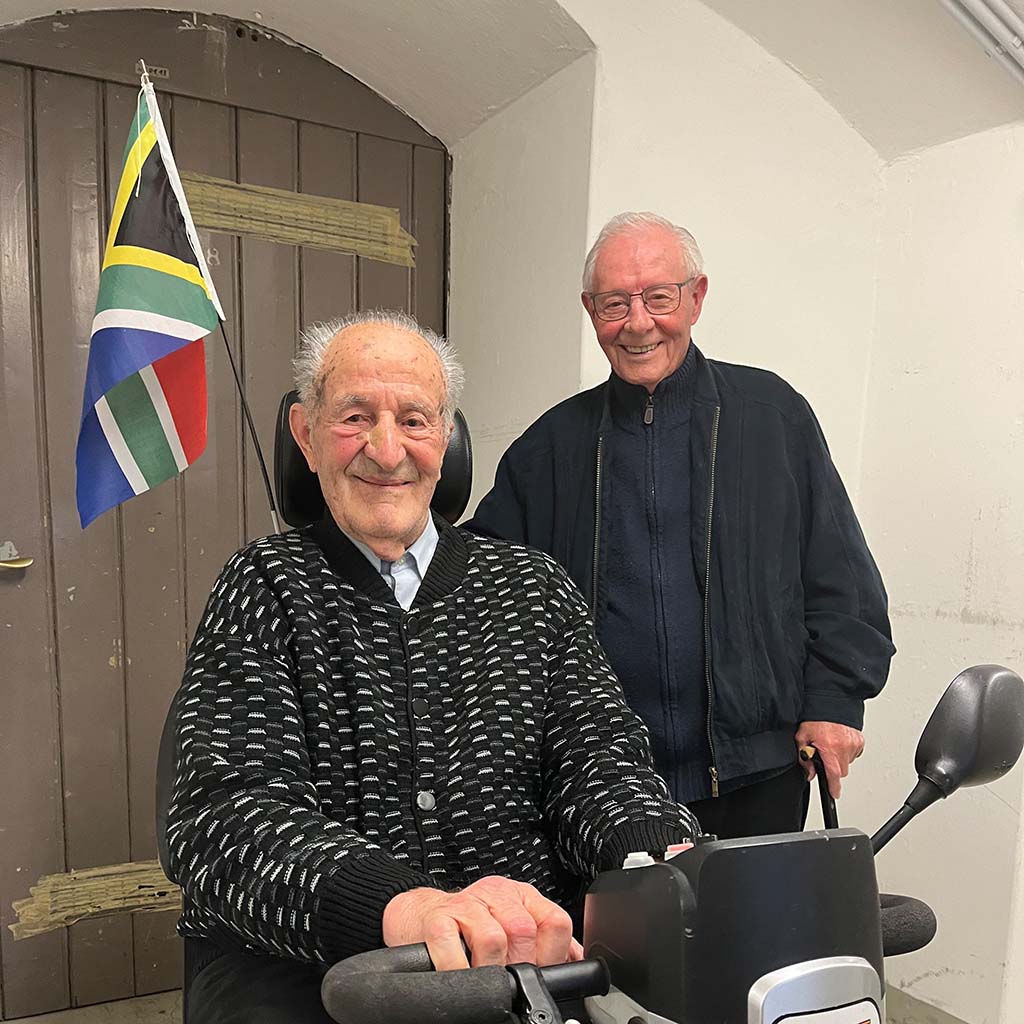
Suddenly back in Germany
In their old age, missionaries are usually looked after in their old home country
Having lived abroad all their lives, they return to Germany in their old age: this is what happens to missionaries from religious orders who have been there for many years. How do they cope? How are they cared for? These are questions that communities like the Pallottines have to ask themselves more and more often when older confreres return.
They have been in India, South America or Africa. They built mission stations and schools, worked in workshops, cared for children and young people, the poor and the sick. When they retire, they usually return to Germany. To Limburg on the Lahn, for example, from where generations of missionaries once set out. Just like Brother Alfonso and Brother Hermann. Adapting to life in Germany is not always easy.
Does he feel at home in Limburg? Brother Hermann smiles thinly and says slowly, a little doubtfully: “Yes, I do!” Brother Alfons’ tenor is different: “I feel very good here. I couldn’t be better off anywhere else!” Both brothers are spending their twilight years in the mission house in Limburg, having spent their active years in South Africa. Brother Herman had to wait almost two years for a visa. During this time he worked in the locksmith’s shop in Limburg before finally joining the mission in 1973. He learnt Afrikaans and managed the farm in Balfour (Diocese of Queenstown), then the community’s own Pallotti farm.
In 2003, for health reasons, he moved to Step-Aside. Here he cared for an elderly confrere and looked after the grounds, garden and woodland. He loved the soup kitchen in the nearby coastal town of George, which provides a hot meal to children every day. Brother Hermann still devotes himself to this project.
Brother Alfons Gross was sent to South Africa in 1962. He was in charge of the electrical installations at Glen Gray Hospital, which was still owned by the Pallottines. After nationalisation in 1976, the government asked him to stay and train the next generation. In 1988 he moved to Ntaba Maria. From here he was in charge of the water supply, generators and windmills for the diocesan facilities. After a heart operation he had to return home in 2018.
Brother Hermann still has some work to do. During Advent, he makes poinsettias from bakery bags; in spring, he grows seedlings for the window boxes. As he finds it increasingly difficult to walk, he uses an inherited electric car to get to the community cemetery, where he takes care of the lights and flowers.
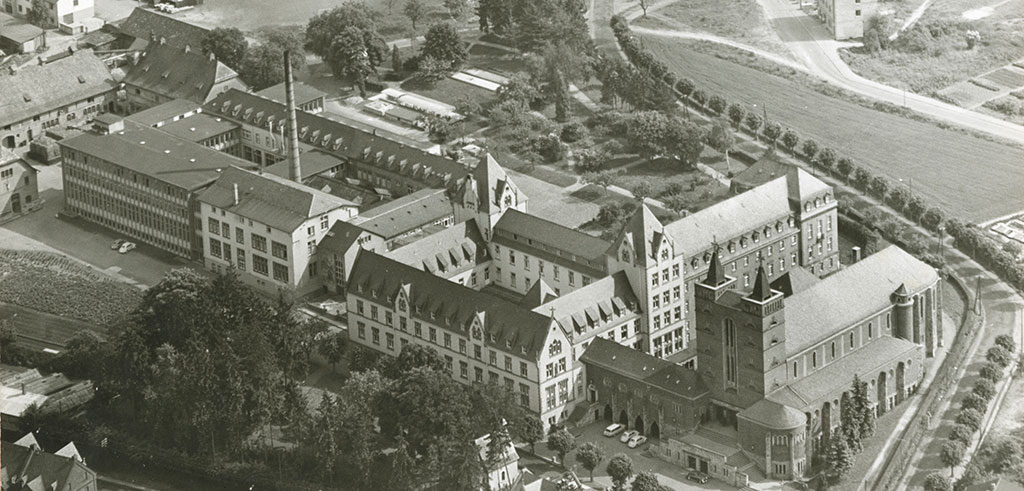
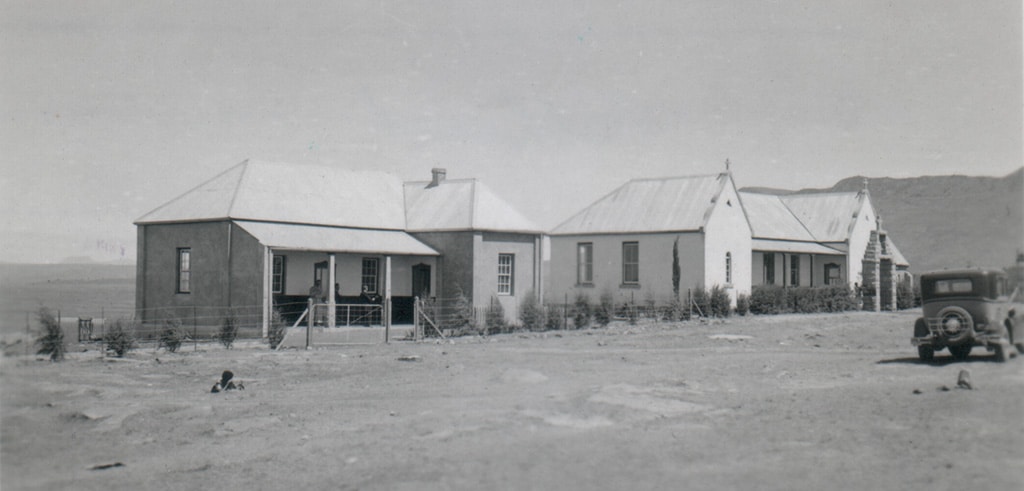
Their hearts remain in South Africa
It is good for both brothers that there is a telephone and e-mail so that they can keep in touch with the Saarland, the Eifel and, above all, South Africa. The people they have worked with and for there are almost always the subject of conversation when they sit around the coffee table together. “Have you heard that this and that…”. Brother Herrmann and Brother Alfons enrich the life of the Limburg community in their own way; this is where they began their Pallottine life and this is where they will end it. But their hearts are and will remain in South Africa.
“I have great respect for the way my confreres live their lives,” says Father Rainer Schneiders, who, as Provincial Economist, is responsible for financing the maintenance and care costs. At the time, they were excluded from the German social security system and only a few paid into the foreign system. Most missionaries did not contribute to any pension or health insurance schemes.
Retirement at 75
The idea at the time was that the mission areas would become independent units and that the confreres there would be provided for, explains Father Schneiders. When they return home after 50 or 60 years, they are often ill, need surgery, need to be looked after and pay into a private health insurance scheme. Such a contribution can amount to a good 1000 euros a month, says Father Schneiders. All this is borne by the community of all Pallottines, which, unlike dioceses, does not receive church tax. All the costs incurred by the community have to be earned through work or donations.
Pallottines usually retire at the age of 75. Even the missionaries do not return before the age of 70. They come from Cameroon, Nigeria, South Africa, Brazil, Uruguay and India. Many would prefer to stay abroad for the rest of their lives. And those who do return usually keep in touch with the mission country, says Father Alexander Holzbach, rector of the Limburg Mission House, which is the mother house for many missionaries because it is where they were trained.
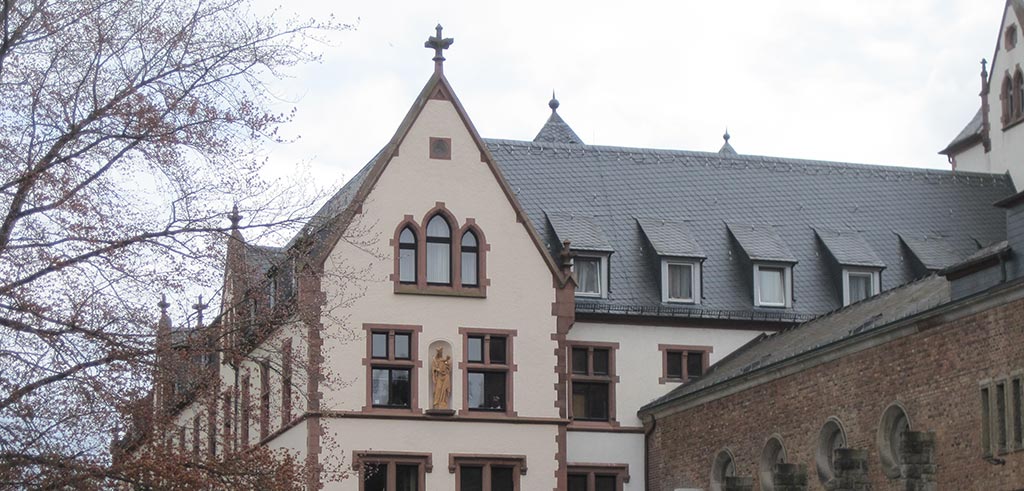
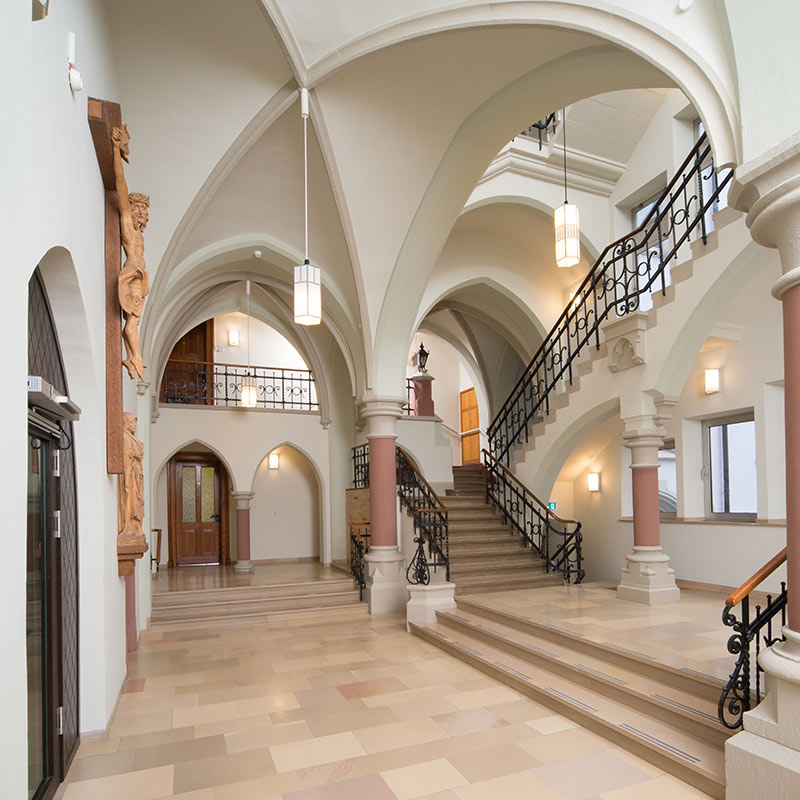
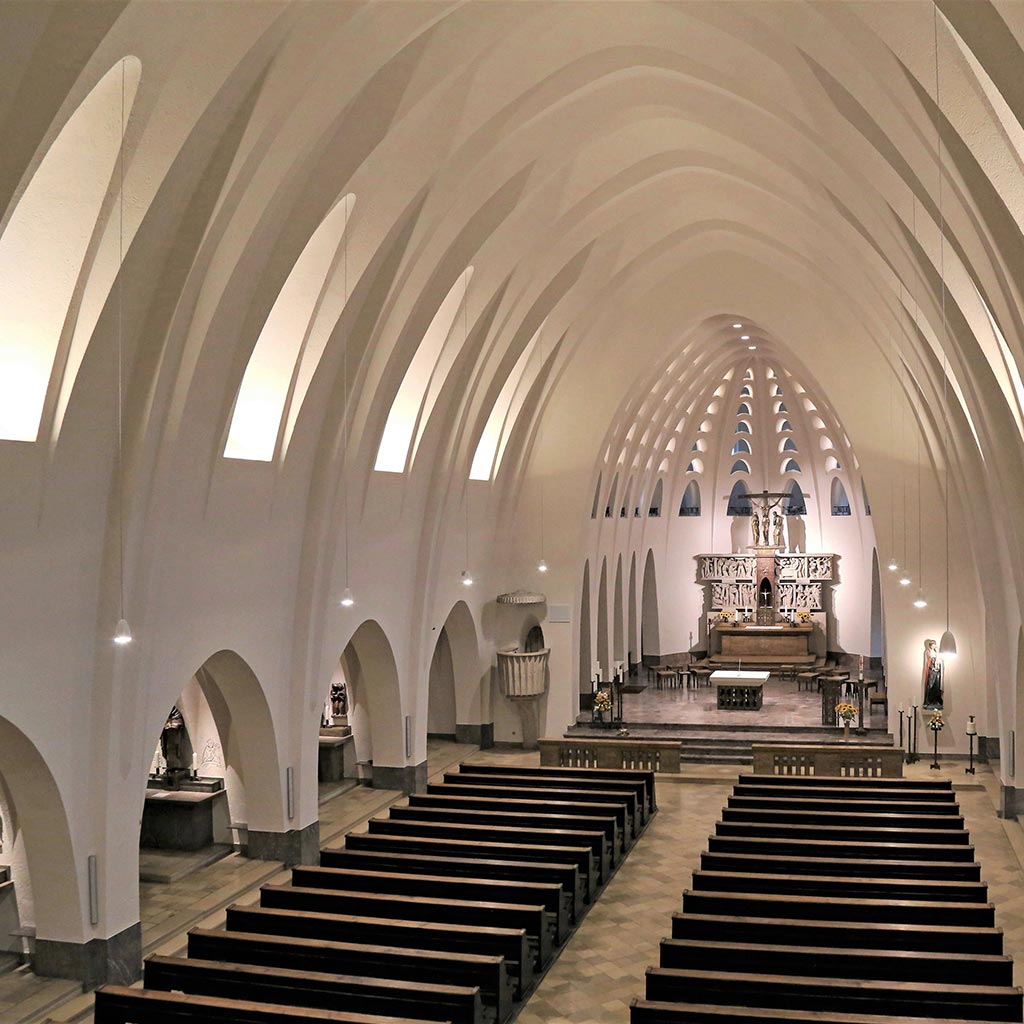

Article and featured image: Alexander Schweda
Other photos: Alexey Stiop (Cape Town, South Africa), Hendrik Jonas (Mission House, St. Mary’s); mojolo (Limburg Cathedral and Old Lahn Bridge); Pallottines; Provincial Archives
Diesen Beitrag teilen…
Recommended


